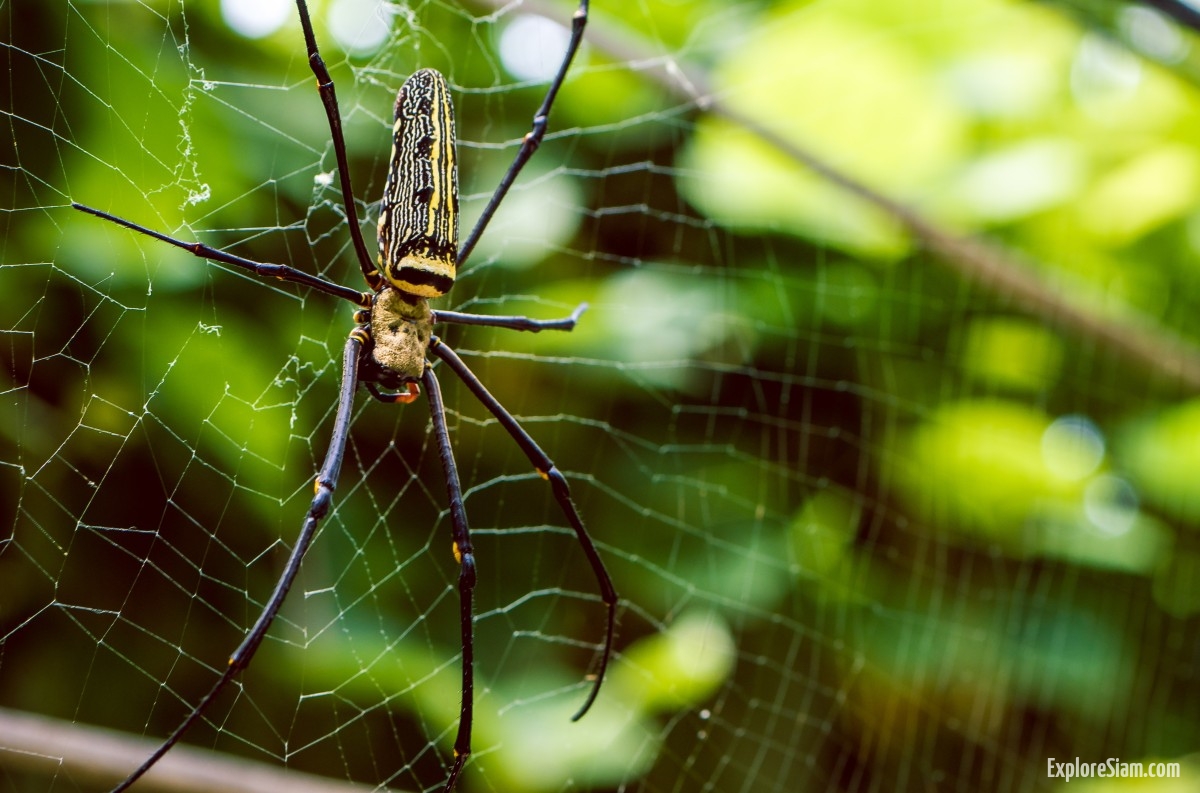Thailand, with its lush landscapes and tropical climate, is a haven for both tourists and a wide variety of insects. These insects, while often small, can pose significant risks to health and comfort. Understanding the types of insects you might encounter and how to protect yourself is crucial for a safe and enjoyable visit.
Mosquitoes are perhaps the most notorious of Thailand’s insects. They are ubiquitous and can carry diseases such as dengue fever, malaria, and Zika virus. Mosquitoes are particularly active during dawn and dusk, but in some areas, they can be a nuisance all day long. To protect yourself, ensure that your accommodations have proper window and door screens to prevent mosquitoes from entering. Using insect repellent is essential, and local brands tend to be the most effective due to their formulation against local mosquito species. Wearing long-sleeved shirts and long pants, especially during peak mosquito activity times, can also provide an extra layer of protection.
Ants are another common insect in Thailand, and while they may seem harmless, certain species can deliver painful bites and cause allergic reactions. Ants are attracted to food, so it is crucial to store food in sealed containers and clean up any spills immediately. Keeping your living space free of crumbs and food residue will help deter these persistent insects. If you experience an ant bite and have a known allergy, it’s important to have antihistamines on hand to manage any reactions.
Centipedes and millipedes, particularly the larger varieties, can be encountered in Thailand’s rural and urban areas. Centipedes can deliver painful bites that may cause swelling, redness, and even allergic reactions. While millipedes are generally less harmful, some can secrete irritating substances. To avoid encounters, check your shoes and bedding before use, as these creatures often seek out dark, warm places. In case of a bite, applying ice to the affected area can reduce swelling and pain.
Scorpions and some species of spiders also inhabit Thailand, with bites and stings that can range from mildly irritating to medically significant. Scorpions tend to hide in dark places, so always check your clothing, shoes, and bedding before use. Spiders, while generally not aggressive, can bite when threatened. Keeping your living area clean and free from clutter will help reduce the likelihood of these insects taking up residence. If stung or bitten, monitor the area for signs of severe reaction and seek medical attention if necessary.
Ticks, while not as commonly discussed as mosquitoes, can also pose a health risk in Thailand. They can transmit diseases such as Lyme disease and spotted fever. When hiking or spending time in grassy or wooded areas, wear light-colored clothing to easily spot ticks and tuck pants into socks to prevent them from reaching your skin. After spending time outdoors, perform a thorough tick check on yourself and any pets. Removing ticks promptly and correctly is crucial to prevent disease transmission.
Sand flies, though small, pack a powerful punch with their bites. These tiny insects are prevalent in coastal and forested areas, particularly during the cooler hours of the day and in shaded places. Sand fly bites can cause significant itching and often lead to allergic reactions or even skin infections. The bites are usually more painful and irritating than those of mosquitoes, and the affected area can become swollen and inflamed. To protect yourself from sand flies, use insect repellent, wear protective clothing, and stay in well-screened areas. If bitten, applying a soothing lotion or antihistamine cream can alleviate itching and discomfort. It’s also essential to keep the bite area clean to prevent infection.
Effective prevention also includes ensuring that your accommodations are well-equipped to keep insects out. Check that all windows and doors have intact screens, and use mosquito nets when necessary. Locally produced insect repellents and protective products are often the most effective, as they are formulated to target the specific insect populations in the region.
In the case of allergic reactions, whether from bites or stings, it is vital to have appropriate medication on hand. Antihistamines and topical creams can provide relief from itching and swelling, while more severe reactions may require immediate medical attention. Carrying a basic first aid kit with these supplies can make a significant difference in managing minor insect-related issues.
Understanding the risks posed by Thailand’s insects and taking proactive measures to protect yourself can ensure a safer and more enjoyable experience. By following these guidelines, you can minimize the impact of these small but potentially troublesome creatures and focus on enjoying the natural beauty and cultural richness that Thailand has to offer.





